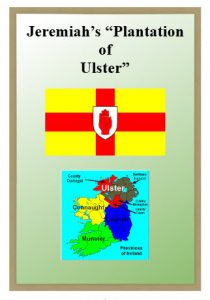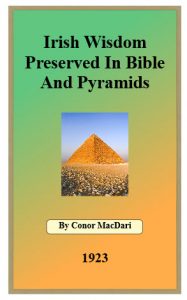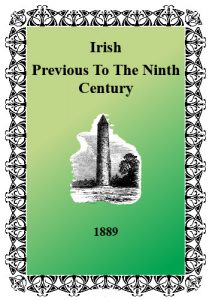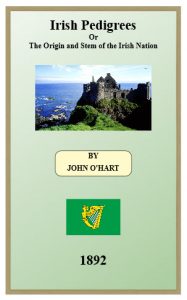INTRODUCTION It is said that truth is often stranger than fiction. Such is the case with the life and mission of the prophet Jeremiah and his connection with Ireland’s ancient past. After the fall of Jerusalem in 586 B.C. the Bible tells us how Jeremiah fled with the Kings daughters and a remnant of Judah into the land of Egypt. But did Jeremiah perish in Egypt along with this royal party or was the Davidic dynasty down planted elsewhere? Irish legendary history contains a striking Incident which tells of the arrival in Ulster of an elderly prophet, accompanied by his scribe and an Eastern princess. This fascinating story not only connects the history of Ireland, Scotland and England, but offers an astonishing revelation In regards to the “Ten Lost Tribes” of Israel and the Davidic Throne that reigns over them.
In the days when King David reigned over the 12 tribes of Israel the Lord spoke to David through the prophet Nathan and said:‑
11 Samuel 7:10; “I will appoint a place far my people Israel and will plant them, that they may dwell in a place of their own and move no more.”



